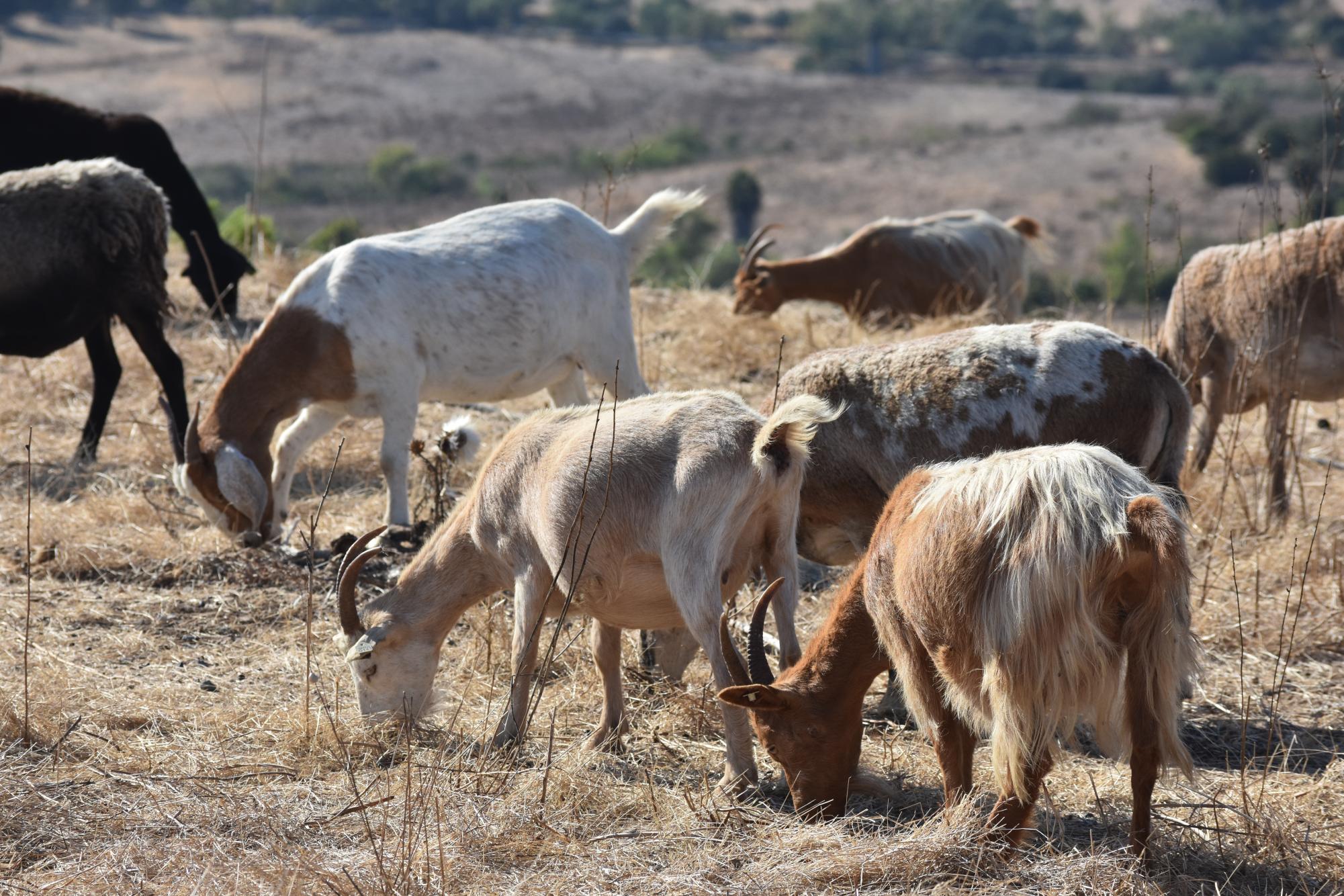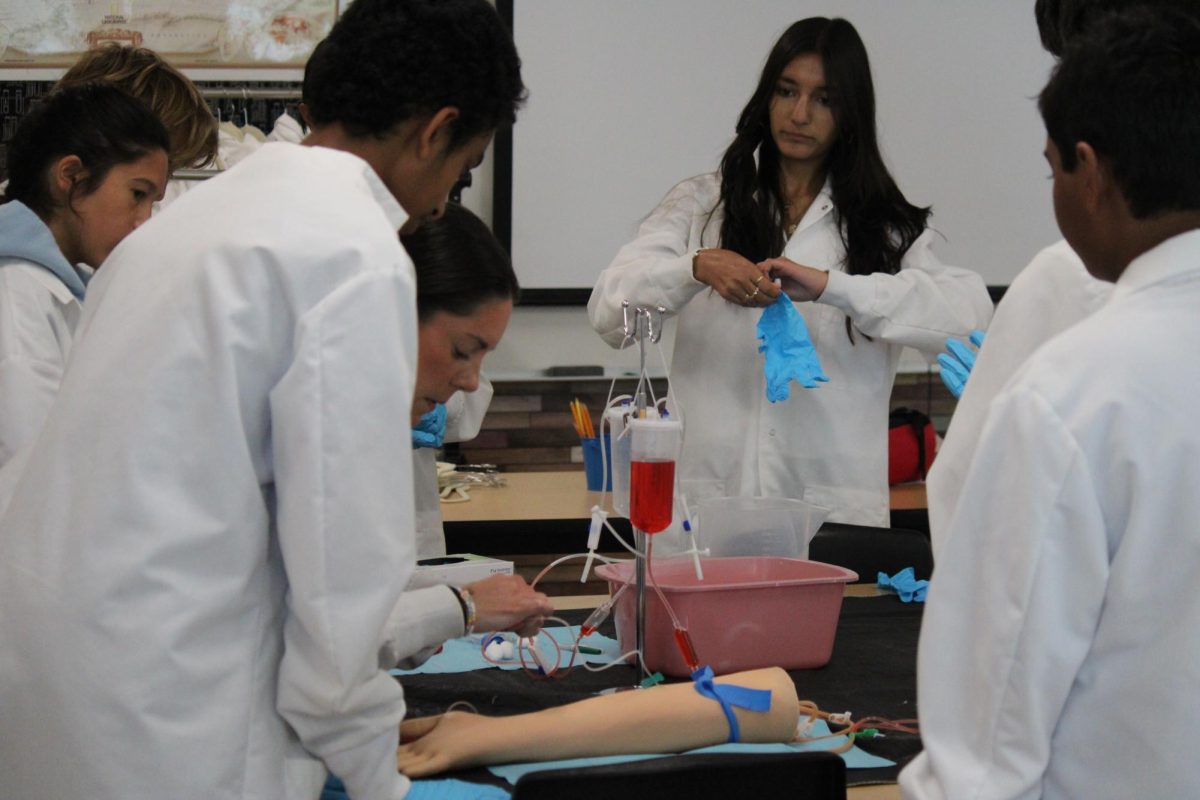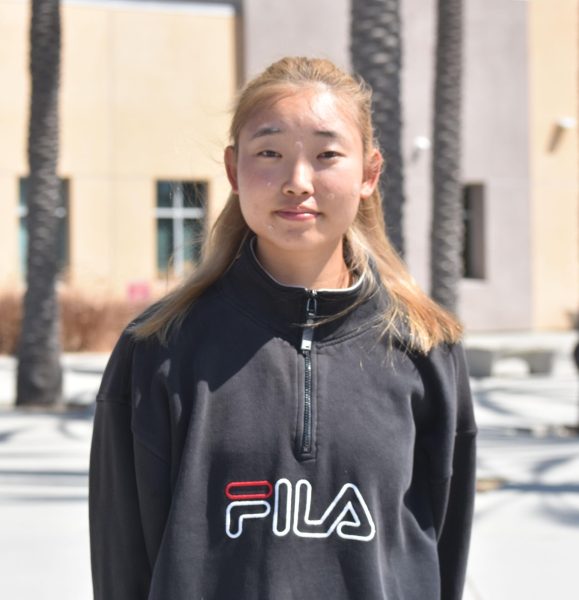If you happen to catch a glimpse of herds of more than 300 goats roaming the fields on Black Mountain Ranch, please do not be alarmed. Though they are not a wild herd, these hungry helpers were recruited by PUSD to act as a fire abatement and land maintenance squad for the 27-acre PUSD property. Owned by regenerative land management business Good Shepherds, the goats and sheep have been grazing on the property since July 1.
Upon meeting the husband-wife duo Matthew Sablove and Angelica Barrera behind Good Shepherds, Alschbach chose to hire them and their goats as the property maintenance team. PUSD Director of Capital Planning Rheia Alschbach, who handles the physical assets of PUSD, said Good Shepherds provided the district an opportunity to maintain the property, bought in 2002, in a more environmentally friendly and cost-efficient way. After associative superintendent of business support services Ronald Little green-lit the project, Good Shepherds agreed to sustain the land in exchange for the space and vegetation to raise and feed the animals. Alschbach said that this agreement, which lasts until July 30, 2027, was more cost effective for the district since they don’t have to pay a team of people.
Though one of the goats’ and sheep’s main purposes is to prevent brush fires, Alschbach said their initial goal was vegetation control and did not consider fire abatement to be a primary factor in the plan.
“We didn’t seek out the goats for fire abatement purposes,” Alschbach said. “It seemed like a perfect opportunity for both [of us] because they were already doing fire abatement work through Santa Luz and into Del Sur.”
As the goats work on clearing out the brush, Alschbach said she will be working on figuring out how exactly the land will be used, along with two other swathes of vacant sites in Santa Fe Valley and Torrey Highlands.
“I am working on forming a committee of seven to 11 people that will review the demographics and development going on in the district to help us determine if we should keep those sites, or if we should look to try to lease them or sell them or have somebody do a joint occupancy with us,” she said.
According to Alschbach, once the committee is done reviewing all of the factors, PUSD will be able to better determine the future of the site. For now, the property is under the care of the Good Shepherds, who have garnered attention from curious residents in surrounding neighborhoods.
“We feel honored to have access to that space right now and to be in the conversation of potential growth in a relationship [with the PUSD] that can be really fruitful for everybody,” Barrera said. “It’s a really interesting way to be inside of a community and people automatically [understand] what you’re doing without us having to explain much.”
Though the goats and sheep are still in the early months of the arrangement, Berrera and Sablove have already begun to see their impact on their sites in promoting more natural forms of land regeneration.
“It connects people to all these natural elements and then they start thinking ‘I need something to take care of this habitat in order for us to be living here safely,’” Sablove said. “People realize the machines aren’t cutting the seed bank down, they’re not changing the composition of the ground.”
According to science teacher Shannon Kreamer, introducing goats can benefit the land in additional ways that fall outside of reducing fire risks.
“Having the goats not only helps prevent fires, but also, through the bio geochemical cycles,” Kreamer said. “All of their waste becomes energy and nutrients for the soil.”
As for Barrera and Sablove, their reward comes from being able to spend quality time with the herd.
“They are such medicine for my mind,” Barrera said. “It’s not something that I noticed immediately, but they really know how to calm the mind. They’re so present and not rushing off to the next thing. They remind me all the time how to just take it nice and slow.”
Moving forward, Barrera and Sablove plan on expanding Good Shepherds to sell produce and products, such as goats’ milk, soap, and lotion. However, Barrera said their mission has remained the same: to reconnect people with wild spaces.
“[Expanding to produce has the] potential to really awaken that connection because when you’re realizing one of the most important things you’re doing every day, like eating, is connected to the land around you, you’re going to look at things a lot differently,” Barrera said. “This isn’t just a business to us. It’s a mission. It’s a movement.”






![Jolie Baylon (12), Stella Phelan (12), Danica Reed (11), and Julianne Diaz (11) [left to right] stunt with clinic participants at halftime, Sept. 5. Sixty elementary- and middle-schoolers performed.](https://wvnexus.org/wp-content/uploads/2025/09/IMG_1948-800x1200.png)







